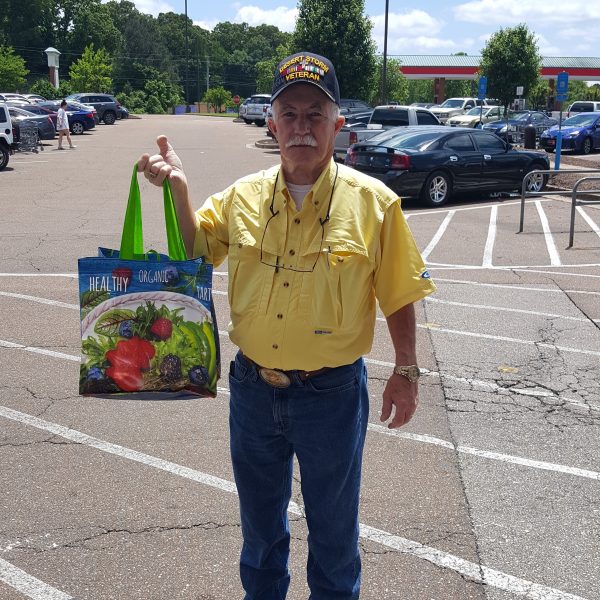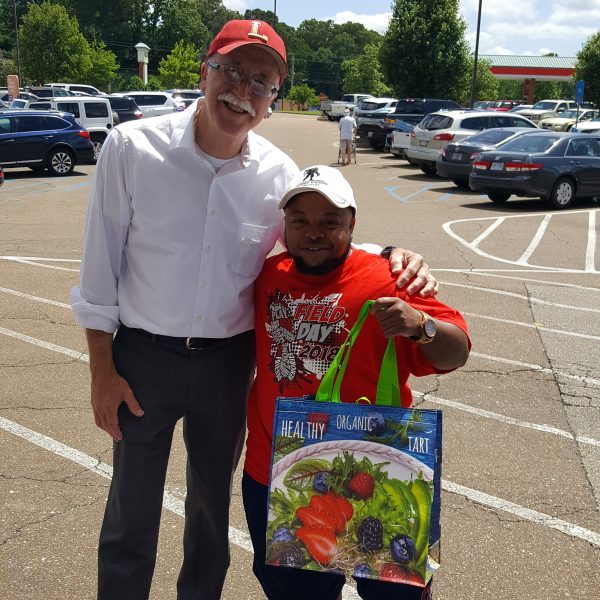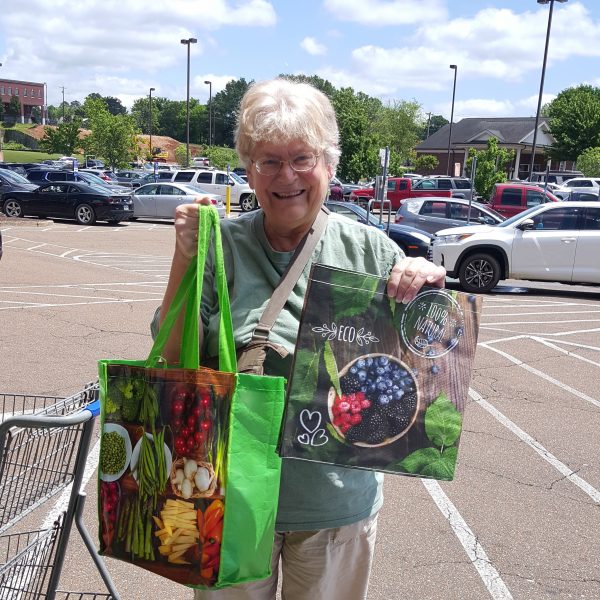Ole Miss Conservation Biology Students and members of the Center for Biodiversity and Conservation Research at the University of Mississippi provided complimentary reusable shopping bags to Kroger customers.
Why?
Plastics in the world’s oceans. Scientists are alarmed at the amount of waste plastics that find their way into our landfills, waterways, and oceans each year. Eight million tons of plastic are thrown into the oceans annually. Unfortunately, many marine organisms cannot distinguish between a floating piece of plastic trash and their normal food items. For example, to a sea turtle, a floating plastic shopping bag appears to be a jellyfish, an important food item. Sea turtles consume the bag and that can be a death sentence. Plastics cause intestinal blockage and can rupture internal organs. One study found that green sea turtles consumed plastics 62% of the times they came across it. What can you do? Reusable shopping bags. We suggest that you place the shopping bags in your automobile after you unload your groceries at home so that you will have them on your next shopping trip. Your continued use of these bags will reduce the amount of plastic trash entering our environment. While this may be a small change for you as an individual, the combined effect of many shoppers reusing these bags can be significant and may help save these beloved ocean creatures.


